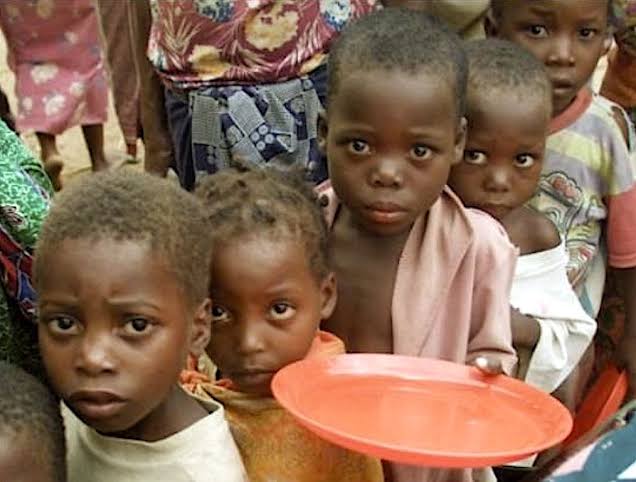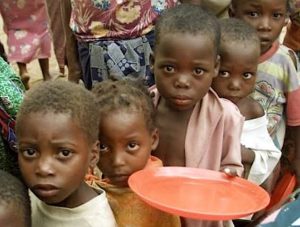The number of poor persons in Nigeria is racing towards the 95.1 million projected this year by the World Bank
According to the World Bank, in its latest 2022 Poverty and Prosperity Report, Nigeria contributed three million people to global extreme poverty, while the country is “home to a large share of the global extreme poor.”
Also, at the weekend, Nigeria was ranked 103 out of 121 countries in the 2022 Global Hunger Index (GHI), a position that signifies the nation has a level of hunger that is serious. The Global Hunger Index was jointly published by the German-based Welthungerhilfe and Dublin-based Concern Worldwide on Saturday to mark the World Food Day.
The report, which ranks countries by ‘severity’, gave Nigeria a score of 27.3 – a hunger level falling under the ‘serious’ category.
The index has five levels of hunger under which each country falls – low, moderate, serious, alarming and extremely alarming. This is the second consecutive year in which Nigeria’s ranking on the scale remains the same. Nigeria, Africa’s most populous nation, ranked 103 out of 116 countries in 2021 and 98 among 107 countries in 2020.
At the beginning of this year, the number of poor Nigerians had increased to 91 million, with the World Bank estimating that an additional one million people were pushed into poverty in Nigeria from June to November 2021.
The latest figure of the poverty index, nearly half of the country’s estimated population of about 214 million, had jumped from 89 million, given by the National Bureau of Statistics (NBS) in May 2020. This means that 6.1 million more persons would have fallen beneath the poverty line in two years, making it the poverty capital of the world.
While India has more people living below the United Nations estimated poverty line of $2 due to its large population, by percentage, the country at barely six per cent, comes second behind Nigeria at 32 per cent.
It was stated that the poverty rate had been aided by the impact of the COVID-19 crisis and the growing population. Today, October 17, marks the 30th International Day for the Eradication of Poverty (IDEP) established by UN. UN Secretary-General, António Guterres, in his message to commemorate the day, stated yesterday: “As we mark the International Day for the Eradication of Poverty, we face a harsh truth: the world is moving backwards.
“COVID-19 plunged millions into poverty, setting back more than four years of hard-won progress. Inequalities are widening. National and household economies are battered by job losses, skyrocketing food and energy prices, and the gathering shadows of a global recession.
“At the same time, the climate crisis and raging conflicts are causing immense suffering, with the poorest people bearing the brunt. Developing countries are being squeezed dry, denied access to resources and debt relief to invest in recovery and growth. The Sustainable Development Goals (SDGs) are being pushed far out of reach.
“The International Day for the Eradication of Poverty is a wake-up call to the world. This year’s theme — ‘Dignity for all in practice’ — must be a rallying cry for urgent global action.
“Action to invest in people-centred solutions — from health and decent work, to gender equality, social protection, and transformed food and education systems. Action to transform a morally bankrupt global financial system and ensure access to financing and debt relief for all countries.
“Action to support developing countries as they transition from planet-killing fossil fuels to renewable energy and job-creating green economies. Action to end conflicts, heal geopolitical divisions and pursue peace; and action to achieve the SDGs. On this important day, let us renew our commitment to a better world for all. Let us consign poverty to the pages of history,” he said.






